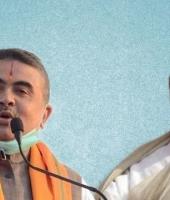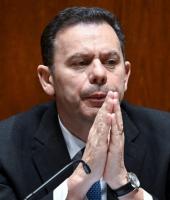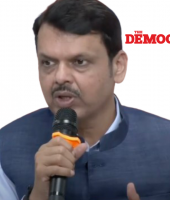UN aid official urges increased support for Niger
A senior UN humanitarian official on Thursday called on the international community to step up support for communities in need in Niger, warning that limited funding and access challenges have put lives at risk.
Approximately 4.3 million people, over half of them children, have been affected by a multifaceted crisis characterized by conflict, climate-induced disasters, hunger and epidemics.
A military coup in July 2023 and the ensuing political instability has further exacerbated their plight.
Edem Wosornu, Operations Director at the UN Office for Coordination of Humanitarian Affairs (OCHA), told reporters in New York via video link from the capital Niamey that the people “need help now”.
“We need to do more, and we need to do more now, putting people at the centre,” she said.
We need to do more, and we need to do more now, putting people at the centre
— Edem Wosornu, OCHA
“If we do not help them now, we will miss the planting season [and] we will not be able to support them and lift them out of their vulnerabilities.”
Ms. Wosornu has been in the landlocked West African country, since Monday, meeting with authorities, aid organizations and affected communities. She visited Diffa in the remote southeast, where refugees from Nigeria have settled after fleeing Boko Haram militants.
‘Hope in the eyes’
Despite the challenging conditions faced by the refugees, particularly women and children, Ms. Wosornu said she felt a strong sense of hope and resilience among the communities.
“The stories [I] heard also illustrate so clearly what we need to do as humanitarians, with the support of the wider international community,” she said, emphasizing the need of mobilizing effective, life-saving assistance and promoting opportunities for people to regain self-sufficiency.
Funds and access needed
“As we look into the new year, we want to ensure that everything we can do to help the people in Niger, both to meet their immediate needs and to promote solutions,” she said.
UN humanitarian efforts require approximately $662 million, but funding levels have decreased, and accessing affected populations poses difficulties.
“Without funds and without access, we will not be able to reach people as quickly and as sufficiently we need to,” the OCHA director said.
Turn words into action
Ms. Wosornu echoed recent statements from UN Emergency Relief Coordinator Martin Griffiths and other principles of the Interagency Standing Committee (IASC), emphasizing the global consensus on supporting the people of the Sahel region.
“They reminded us that for years the world has agreed that we must the help the people of the Sahel. Now is the time to turn these words into action,” she said.
“Now is the time to be behind the people in Sahel, including the Nigeriens.”
About The Author
Related Posts
Post Comment
Latest News
 NASA's Sunita Williams Stuck in Space: 8-Day Mission Turns into 9-Month Wait!
NASA's Sunita Williams Stuck in Space: 8-Day Mission Turns into 9-Month Wait!


.png)


.jpg)

.png)






.jpeg)

Comment List